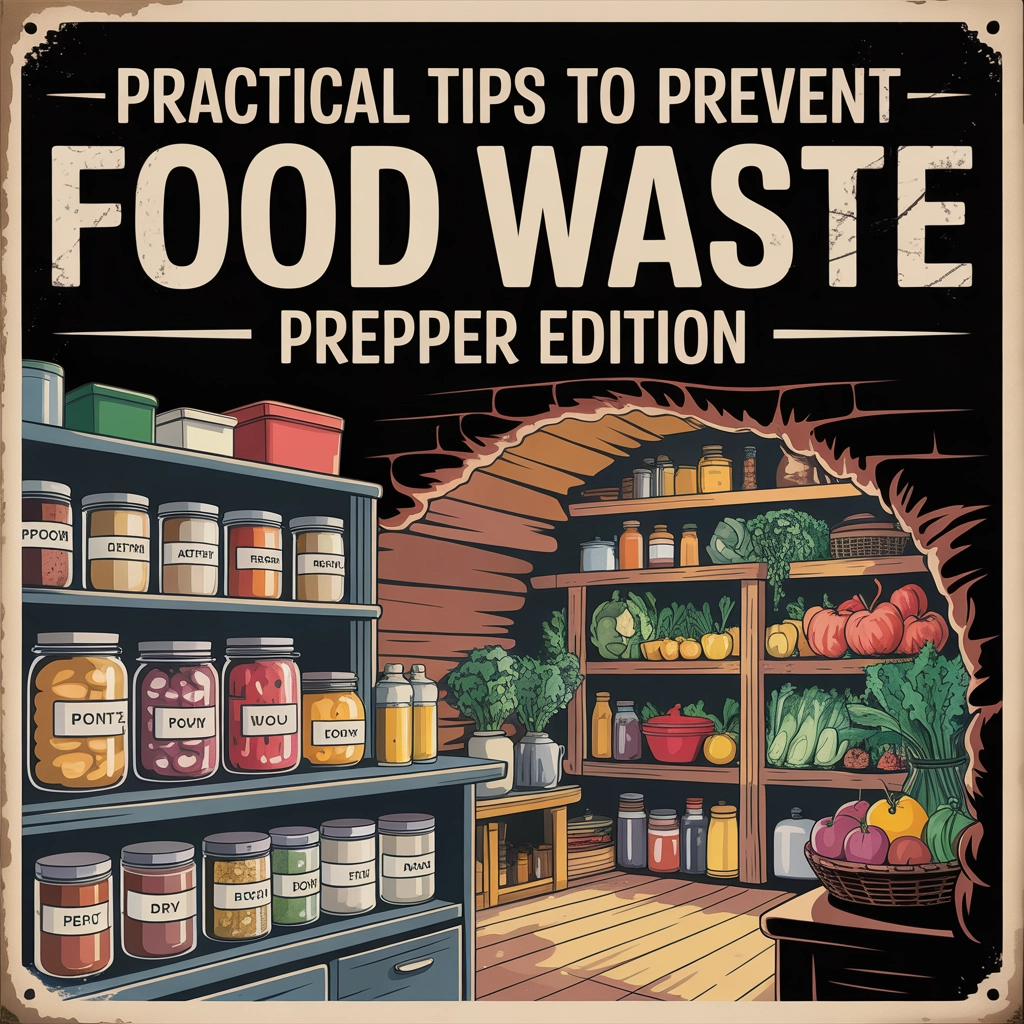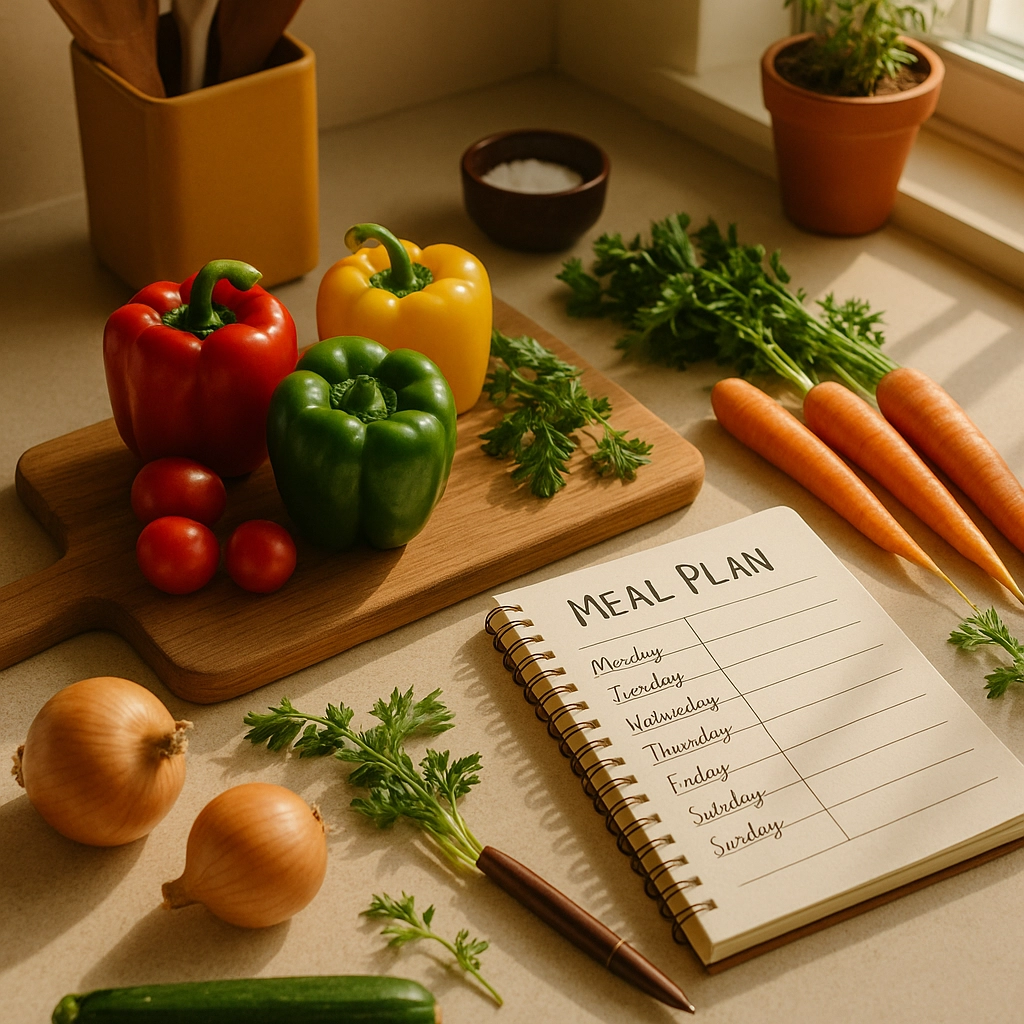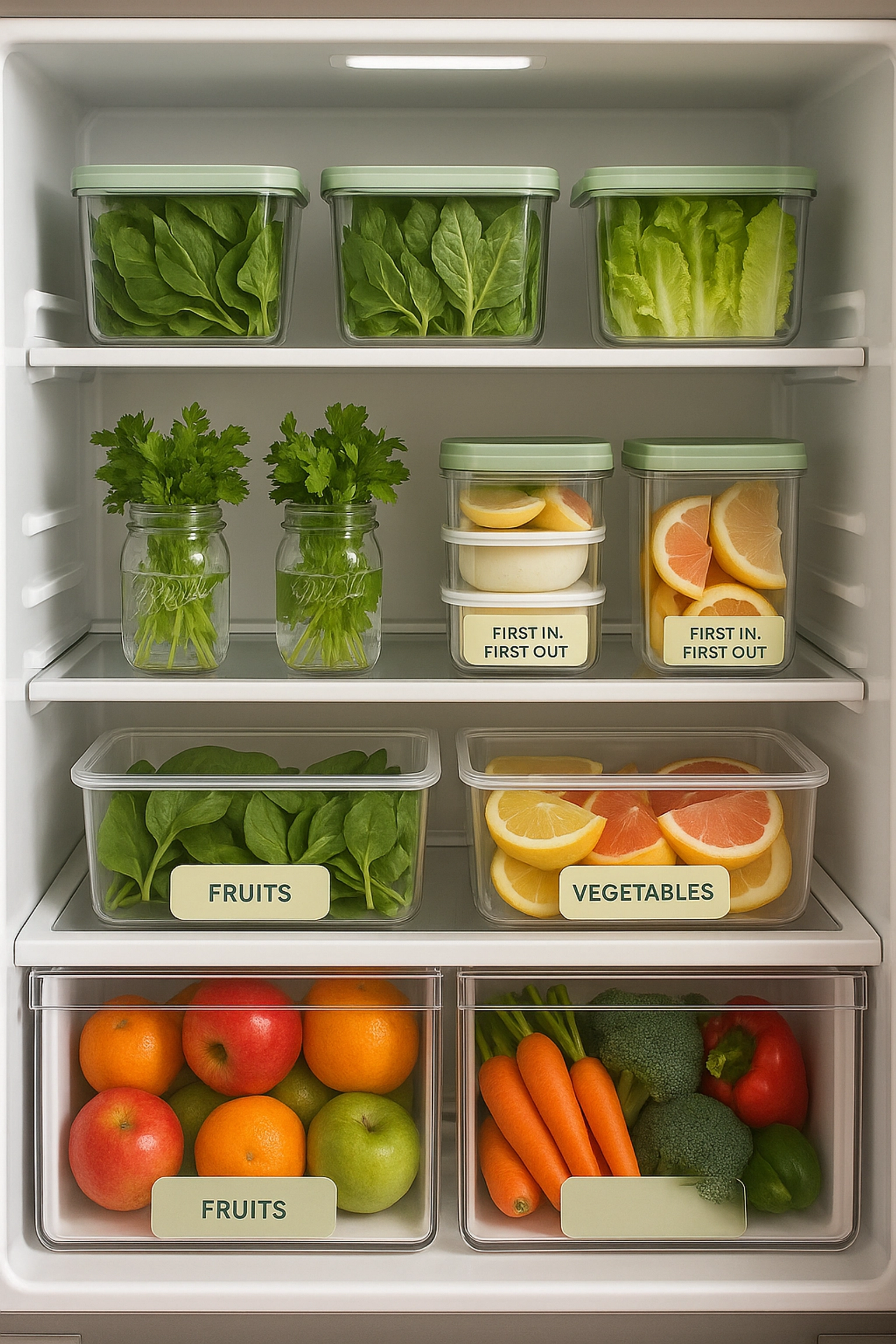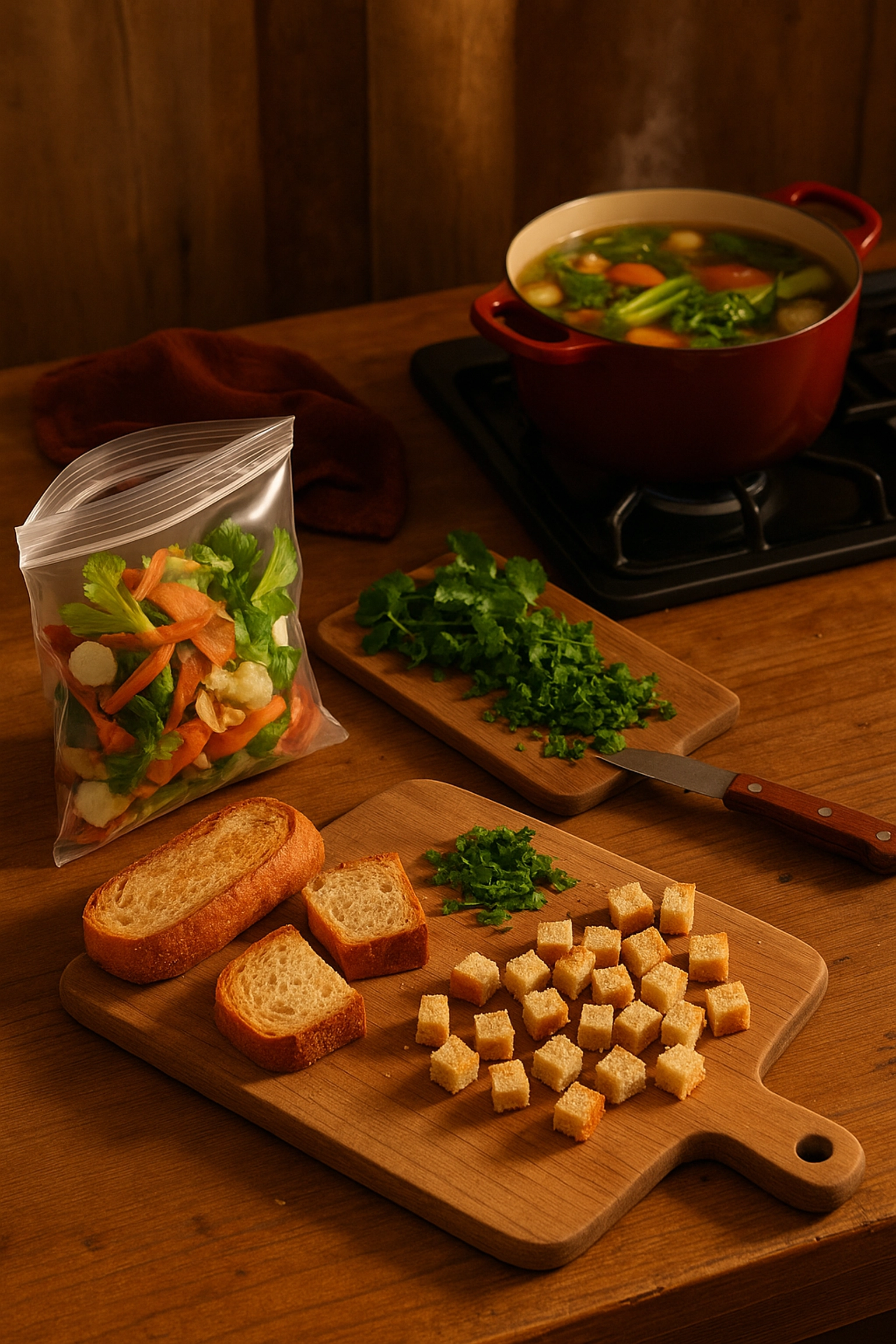
Let’s talk about something that hits both our wallets and our planet hard: food waste. Did you know the average American family throws away about $1,500 worth of food every year? These days, we know every dollar counts, especially when we’re building our emergency reserves or just trying to stretch that grocery budget a little further.
Food waste isn’t just an environmental issue: it’s a financial drain that affects our ability to prepare for the unexpected. But with some simple strategies that fit perfectly into a prepper mindset, we can dramatically cut down on waste while saving money. I’ll provide some practical, no-judgment tips that actually work in real life (and if you want to hear me expand on this and my own experiences, check out my podcast, “The Prepared Pantry: A Guide to Zero Food Waste” here).
Master the Art of Meal Planning
Meal planning isn’t just for Pinterest-perfect moms: it’s a survival skill that prevents the dreaded “What’s for dinner?” panic that leads to overbuying and waste. Start simple: plan just three to four meals for the week, focusing on recipes that share similar ingredients.
For example, if you buy a bunch of bell peppers, plan to use them in a stir-fry Monday, stuff them Wednesday, and toss the extras into a weekend omelet. This approach ensures you’re not buying random ingredients that end up forgotten in your fridge.
Create your shopping list based on these planned meals, and stick to it. I know it’s tempting to grab that “just in case” item, but trust the process. Your future self (and your budget) will thank you when you’re not throwing out mystery vegetables two weeks later.

Storage Savvy: Keep Food Fresh Longer
Proper food storage is key to saving your money and having what you buy last longer. Understanding which foods need what environment can literally double their lifespan. Here’s the real talk on storage:
- Leafy greens, berries, carrots, celery, and most herbs thrive in the cold. Store greens in breathable containers with a paper towel to absorb excess moisture.
- Tomatoes, bananas, avocados, and most stone fruits actually do better at room temperature until they’re perfectly ripe. Only then should they go to the fridge.
- Potatoes, onions, and garlic prefer a pantry-like environment: never store potatoes and onions together, though, as they make each other spoil faster.
The “first in, first out” (FIFO) rule is your best friend here. When you bring home groceries, move older items to the front and new purchases to the back. This simple rotation system ensures nothing gets forgotten and buried in the depths of your fridge.
Leftover Magic: Transform Yesterday’s Dinner
Leftovers don’t have to be boring reheats. Think of them as ingredients for new creations. That roasted chicken from Sunday becomes Monday’s chicken salad, Tuesday’s soup base, and Wednesday’s quesadilla filling.
Vegetable scraps are a golden treasure for preppers. Save onion peels, carrot tops, celery leaves, and herb stems in a freezer bag. When it’s full, simmer everything into a rich vegetable stock that’s way better (and cheaper) than store-bought.
Stale bread transforms into breadcrumbs, croutons, or bread pudding. Overripe bananas become smoothies or banana bread. Wilting vegetables get a second life in stir-fries, soups, or frittatas. The key is shifting your mindset from “this is going bad” to “how can I use this?”

Decode Those Confusing Date Labels
Let’s clear up the confusion around dates on food labels once and for all. “Best By” and “Use By” dates are about quality, not safety. Most foods are still perfectly safe to eat past these dates. “Sell By” dates are for stores, not consumers. Read more about this in an earlier article, “Is It Safe? The Truth about Expiration Dates” here.
Trust your senses: look for obvious signs of spoilage like mold, off smells, or weird textures. Canned goods can last years past their “best by” dates if stored properly. Dry goods like rice, pasta, and beans can last even longer when kept in airtight containers.
This knowledge is important from a prepping standpoint because it means you can confidently keep supplies longer and waste less due to misunderstanding what those dates mean. Your emergency food stores just became more reliable and cost-effective.
Composting Made Simple
Even with our best efforts, some food waste is inevitable. Instead of sending it to the landfill where it creates methane gas, turn it into black gold through composting. Don’t worry: you don’t need a backyard or fancy setup.
For apartment dwellers, try worm composting with a small container system, or freeze scraps until you can take them to your local community garden, community composting site, or your gardening friend. Many cities now offer composting pickup services, making it easier than ever to participate. Check to see if you have this in your area!
If you have any outdoor space, even a small balcony, a simple compost tumbler can turn your scraps into rich soil amendment for herbs or container plants, and while it’s decomposing, the liquid becomes what is known as “compost tea,” which gardens love. It’s the ultimate prepper circle of life: food waste becomes food production.

Right-Size Your Portions
Portion control isn’t just about waistlines: it’s about waste prevention. We often shop when we’re hungry and then cook with our eyes, making way more than we can actually eat. Start with smaller portions and remind yourself that you can always make more if needed. Chances are, the thought of cooking more after you’ve just done it may change your mind.
When cooking grains like rice or quinoa, stick to the package directions rather than eyeballing it. These foods expand dramatically, and it’s easy to end up with way more than you planned. If you are leftovers-avoidant or haven’t planned to use the excess, this is not what you want! For proteins, think about 4-6 ounces per person as a starting point.
Consider your family’s actual eating patterns, not their theoretical appetite. Kids might not finish that full adult portion, and busy schedules might mean smaller dinners some nights. When planning your meals for the week, consider everyone’s schedule, then cook accordingly.
The Bottom Line: Every Dollar Counts
Preventing food waste isn’t about being perfect: it’s about being intentional. These strategies work because they’re simple, practical, and designed for real life, not Instagram. When you reduce food waste, you’re essentially giving yourself a grocery budget raise without changing your income.
For us urban preppers, this matters even more. Every dollar we save on waste can go toward building our emergency supplies. Every skill we develop in food preservation and storage makes us more resilient. Every habit we build around intentional consumption prepares us for uncertain times.
Start with one or two strategies that feel manageable, then build from there. Maybe this week you focus on meal planning, next week you tackle proper storage. Small changes compound into big results over time.
Remember, this journey is about progress, not perfection. Be kind to yourself as you learn these new habits. Every piece of food you save from the trash is a win for your wallet, your family, and the planet.
Ready to take your food prep game to the next level? Subscribe to my newsletter for more practical tips and news that fit your real life, and don’t miss my latest podcast episode, where I dive deeper into urban preparedness strategies that actually work.
Your future prepared self is counting on the habits you build today. Let’s make them count!


